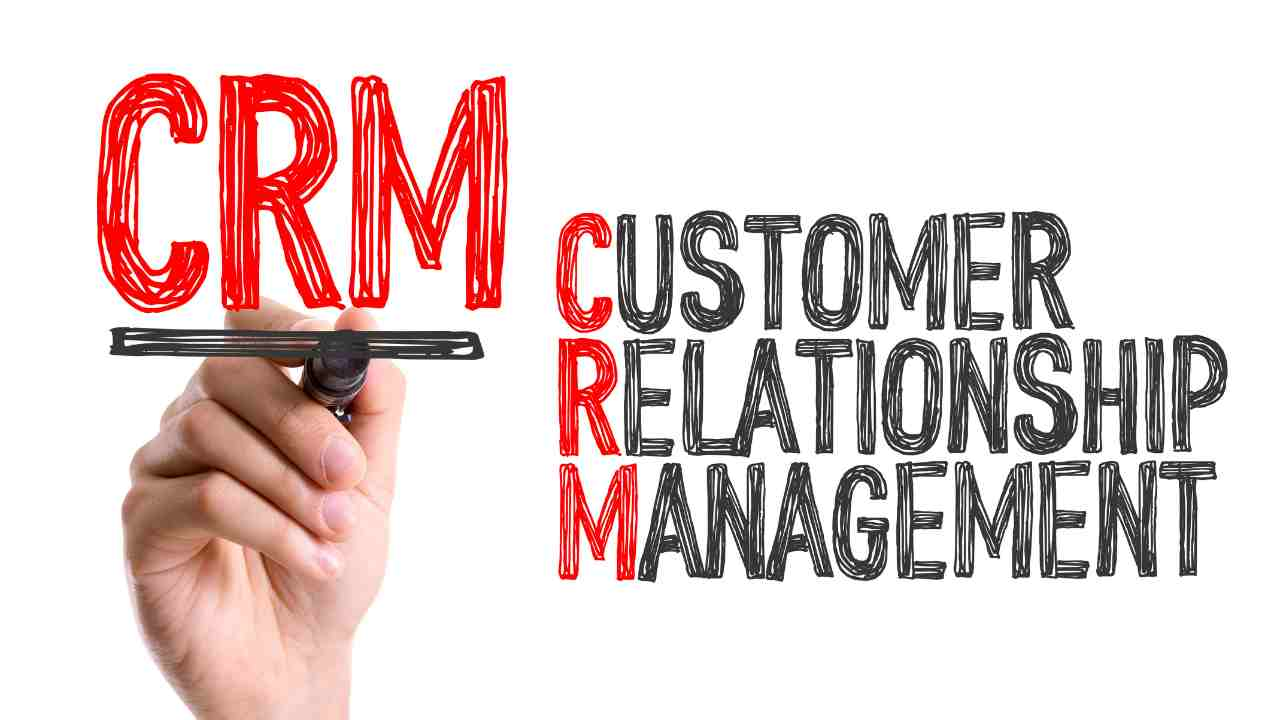Enhancing Workflows with CRM

Customer Relationship Management (CRM) systems have become an essential tool for businesses of all sizes. By streamlining and automating various aspects of customer interactions, CRM software enhances workflows and improves overall efficiency. In this article, we will explore the benefits of using CRM systems and how they can transform the way businesses operate.
What is CRM?
CRM stands for Customer Relationship Management. It refers to a set of strategies, practices, and technologies that companies use to manage and analyze customer interactions and data throughout the customer lifecycle. CRM systems provide businesses with a centralized platform to store customer information, track sales activities, and automate various processes.
CRM software typically includes features such as contact management, lead tracking, sales forecasting, and customer service management. These tools enable businesses to better understand their customers, improve communication, and make data-driven decisions.
The Benefits of CRM
Implementing a CRM system can bring numerous benefits to businesses. Let’s explore some of the key advantages:
1. Improved Customer Relationships
A CRM system allows businesses to gain a comprehensive view of their customers by consolidating data from various touchpoints. This holistic view enables businesses to understand customer preferences, purchase history, and communication preferences. Armed with this information, businesses can personalize their interactions, provide better customer service, and build stronger relationships.
For example, a sales representative can access a customer’s purchase history and preferences before making a sales call. This knowledge allows them to tailor their pitch and offer relevant products or services, increasing the chances of a successful sale.
2. Streamlined Sales Processes
CRM systems automate and streamline sales processes, making it easier for sales teams to manage leads, track opportunities, and close deals. By automating repetitive tasks such as data entry and follow-up emails, sales representatives can focus on building relationships and closing deals.
For instance, a CRM system can automatically assign leads to sales representatives based on predefined criteria, ensuring that leads are promptly followed up. It can also send automated reminders for follow-up actions, preventing potential opportunities from slipping through the cracks.
3. Enhanced Collaboration
CRM systems facilitate collaboration and information sharing among team members. By centralizing customer data and communication history, everyone in the organization can access the same information, eliminating silos and improving collaboration.
For example, a customer service representative can quickly access a customer’s purchase history and previous interactions with the sales team. This information enables them to provide more personalized and efficient support, leading to higher customer satisfaction.
4. Data-Driven Decision Making
CRM systems provide businesses with valuable insights and analytics that can inform decision making. By analyzing customer data, businesses can identify trends, spot opportunities, and make data-driven decisions.
For instance, a marketing team can analyze customer data to identify the most effective marketing channels and campaigns. This information allows them to allocate resources more efficiently and optimize their marketing efforts.
Case Study: XYZ Company
Let’s take a look at how XYZ Company, a small e-commerce business, enhanced their workflows with a CRM system.
Before implementing a CRM system, XYZ Company struggled with managing customer inquiries and tracking sales opportunities. Customer information was scattered across different platforms, making it difficult to provide personalized support and track customer interactions.
After implementing a CRM system, XYZ Company experienced significant improvements in their workflows. The centralized customer database allowed their sales team to access customer information quickly, resulting in more personalized sales interactions and increased conversion rates.
The automated lead tracking and follow-up features of the CRM system ensured that no potential opportunities were missed. Sales representatives received timely reminders for follow-up actions, leading to improved sales efficiency.
Furthermore, the marketing team at XYZ Company used the CRM system’s analytics capabilities to analyze customer data and identify the most effective marketing channels. This allowed them to allocate their marketing budget more effectively and achieve a higher return on investment.
CRM systems have become indispensable tools for businesses looking to enhance their workflows and improve customer relationships. By consolidating customer data, streamlining sales processes, facilitating collaboration, and providing valuable insights, CRM systems enable businesses to operate more efficiently and effectively.
Whether you are a small business owner, agency owner, or marketer, implementing a CRM system like SaasExpert.ca can revolutionize the way you manage customer relationships and drive business growth. Don’t miss out on the opportunity to enhance your workflows and take your business to the next level.
Learn more about “Streamlining Tasks with CRM” right here.
Frequently asked questions about Enhancing Workflows with CRM.

How Can CRM Help Me Streamline Tasks Across Multiple Departments? 🏢🔄
Ah, the classic challenge of getting multiple departments to work in harmony! Believe me, a CRM can be your conductor for this orchestra. 🎶🎵
First, let’s talk data centralization. A CRM allows you to store all customer interactions, internal notes, and more in a single platform. Say goodbye to searching through various spreadsheets or emails. Your sales, marketing, customer service, and even finance teams can get all the information they need from one unified place. 🌐💾
Now, about task automation. You can set up your CRM to automatically assign tasks to team members based on predefined conditions, such as lead scoring or ticket urgency. So, the sales team doesn’t have to manually sift through new leads, and customer service doesn’t have to prioritize tickets. It’s like having a super-organized assistant working around the clock. 🔄🕒
Real-time notifications are a blessing too! Whenever a task is completed, or a customer action takes place, relevant team members can receive instant notifications. This ensures that everyone can react in real-time, cutting down delays in internal communications. 📣⚡
Let’s not forget analytics. With CRM, you get detailed reports on various metrics like customer engagement, task completion rates, or employee performance. This valuable data is accessible across departments, making it easier to make collaborative decisions. 📊💡
Last but not least, third-party integrations. Most CRM systems can integrate with other tools like email platforms, accounting software, and project management systems. This means your team can work with their favorite tools while still benefiting from the centralized data and automation features of the CRM. 🛠️🔗
So, a CRM can significantly streamline tasks across multiple departments by centralizing data, automating task assignment, sending real-time notifications, offering analytics, and supporting third-party integrations. 🌟
How Can CRM Streamline Communication within My Team? 🗨️🤝
Team communication can make or break your business, and luckily, CRM is here to make sure it’s the former. 🌟
Take internal notes and mentions, for example. These features allow team members to leave notes and tag colleagues on customer profiles or specific tasks. So, if someone from the sales team speaks to a customer about a unique request, they can tag someone from product development to look into it. 📝🔖
File sharing is another underrated but powerful feature. You can attach documents, images, or other files directly to customer profiles or tasks. This makes it easier for team members to find relevant materials without having to sift through emails or shared drives. 📎🗂
Project management capabilities are often built right into advanced CRMs. This means your team can set milestones, create tasks, and track progress without ever leaving the CRM platform. Imagine the time saved on having to update multiple platforms! ⏳🎯
Moreover, CRMs are increasingly mobile-friendly, meaning your team can communicate and update tasks on-the-go. This is particularly helpful for sales teams that are often out in the field. 📱🚀
And don’t underestimate the power of integrations with communication tools like Slack or Microsoft Teams. These integrations mean you can send CRM notifications straight to your team’s chat, streamlining communication even further. 💬🔄
So, to wrap up, CRM can help streamline internal communication through features like internal notes, file sharing, built-in project management, mobile accessibility, and third-party integrations with communication platforms. 🌈👏
Can a CRM Help Me Streamline My Sales Process? 🤑📈
Absolutely! If sales are the lifeblood of your business, a CRM is the circulatory system ensuring it flows smoothly. 💓
Lead assignment is a start. Automated rules can distribute leads to the sales team based on geography, expertise, or even workload. This takes the guesswork out of who should handle what, making the process quicker and more efficient. 🌐👨💼
Then comes automated follow-ups. A CRM can send personalized emails or reminders based on triggers like an opened email or an uncompleted purchase. These automated nudges can significantly increase conversion rates. 💌🔔
Don’t overlook the power of sales scripts and templates. A CRM can store these resources, making it easy for your team to access proven strategies for engaging with leads and customers. 📄📚
Pipeline management is another area where a CRM shines. You can track the status of various deals at a glance, and easily move them along the funnel through drag-and-drop interfaces. It’s a visual, intuitive way to manage your sales process. 🚀🎯
Finally, there are analytics. Detailed reporting can show you which sales strategies are working and which aren’t, allowing you to optimize for success. 📊🔍
In essence, a CRM can streamline your sales process through automated lead assignment, follow-ups, easy access to resources, intuitive pipeline management, and detailed analytics. 💰🌟
How Can CRM Assist in Streamlining Marketing Efforts? 🎯📣
Marketing and CRM are like peanut butter and jelly, a perfect combo that brings out the best in each other! 🥪
First off, segmentation. Your CRM can automatically segment your customer database based on various factors, such as buying history or engagement level. You can then target these segments with specialized campaigns. 🎯📊
Email automation is another gem. Schedule a sequence of emails to go out based on triggers or time delays. Think about automated welcome series, anniversary emails, or promotional campaigns that don’t require constant manual input. 💌🔄
CRMs can also track customer interactions across various touchpoints, from emails to website visits. This data can be incredibly useful for refining your marketing strategies. For example, if you notice a high number of customers visiting a particular product page but not making a purchase, you can create a targeted marketing campaign to address this. 📈🔍
Social media integrations are often part of the package too. You can schedule posts, track engagement, and even manage customer queries from social platforms, all from your CRM. It’s a marketer’s dream come true! 📱💬
To sum it up, CRMs can significantly streamline marketing efforts through customer segmentation, email automation, multi-touchpoint tracking, and social media integrations. 🌈🚀
How Can I Streamline Customer Service Using CRM? 🤝🎧
Excellent customer service can set you apart from competitors, and a CRM is your secret weapon for achieving this. 🏆
Automated ticketing systems can categorize and prioritize customer queries, making sure urgent issues are addressed first. It’s like having an organized, virtual receptionist! 🎫🔄
Knowledge bases can be integrated into most CRMs, offering customers a self-service option for common queries. This not only empowers customers but also frees up your customer service reps to handle more complex issues. 📚🤖
Speaking of reps, a CRM can provide them with a comprehensive customer history at their fingertips. When a customer contacts you, the rep can quickly see past interactions, purchases, and even notes from other departments. This makes resolving issues quicker and more personalized. 📜👀
Real-time metrics are often a feature, allowing managers to monitor customer service effectiveness in real-time, from response times to resolution rates. These insights can help in training and process optimization. 📊🕒
So, CRM can streamline customer service through automated ticketing, knowledge bases, comprehensive customer history, and real-time metrics. 🌟🎉
So there you have it! CRMs can do wonders in streamlining tasks, whether it’s sales, marketing, customer service, or internal communication. Cheers to a more organized and efficient business! 🥂🌟







